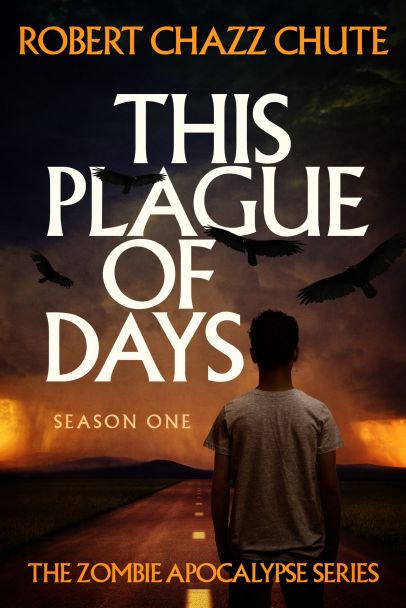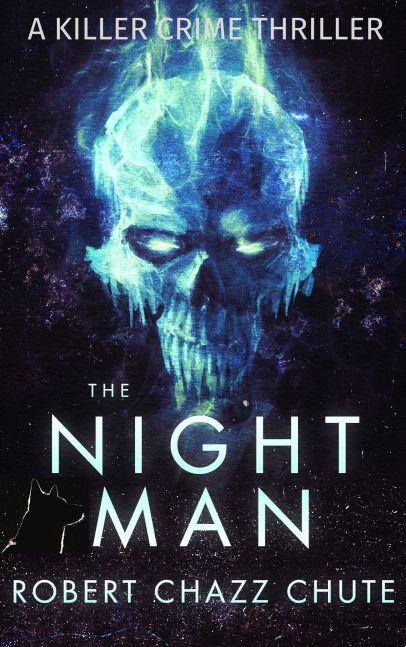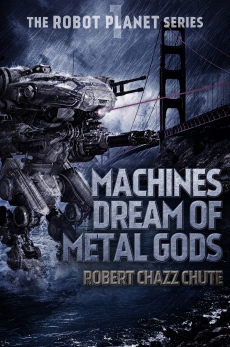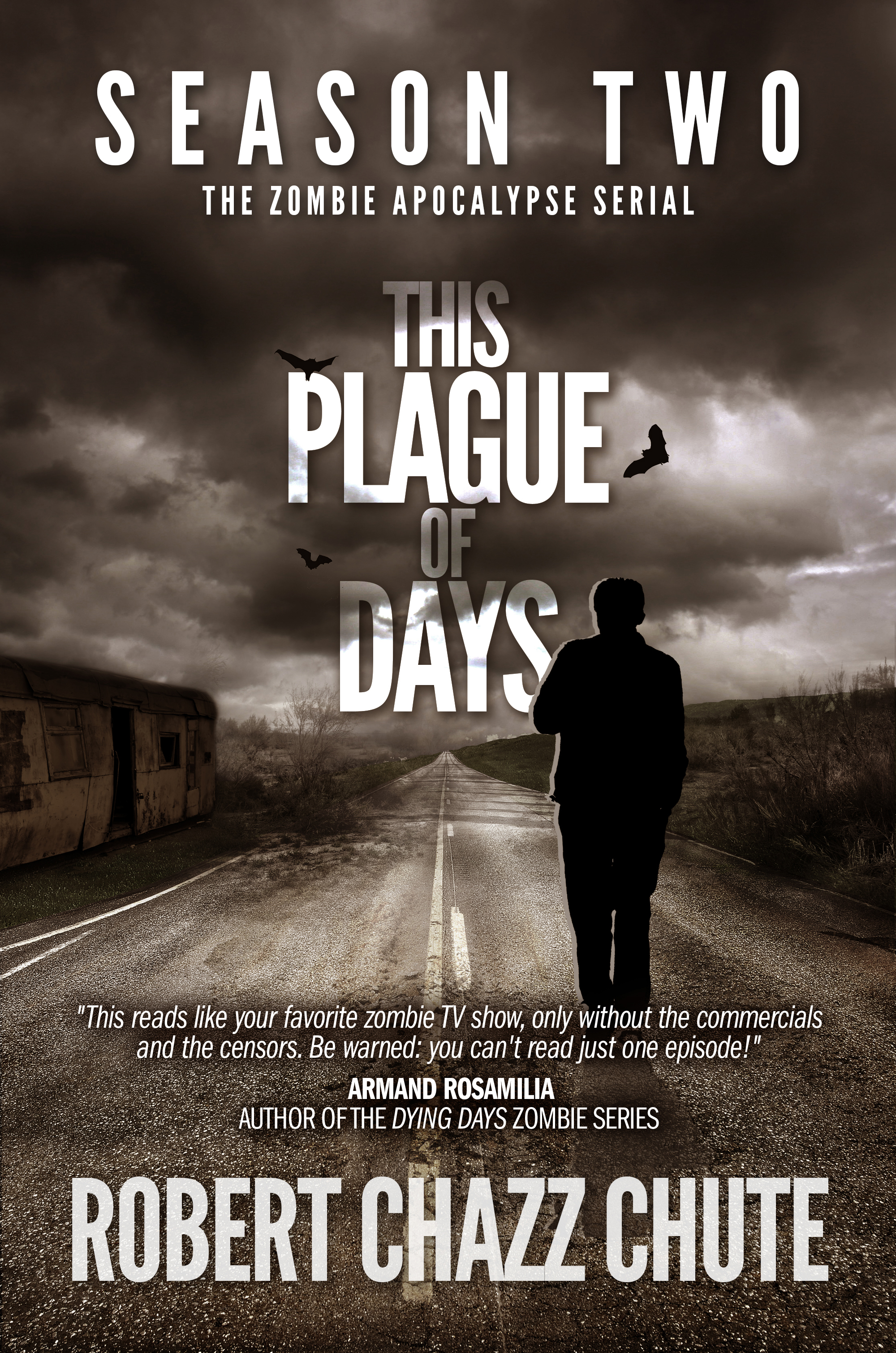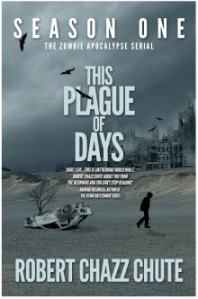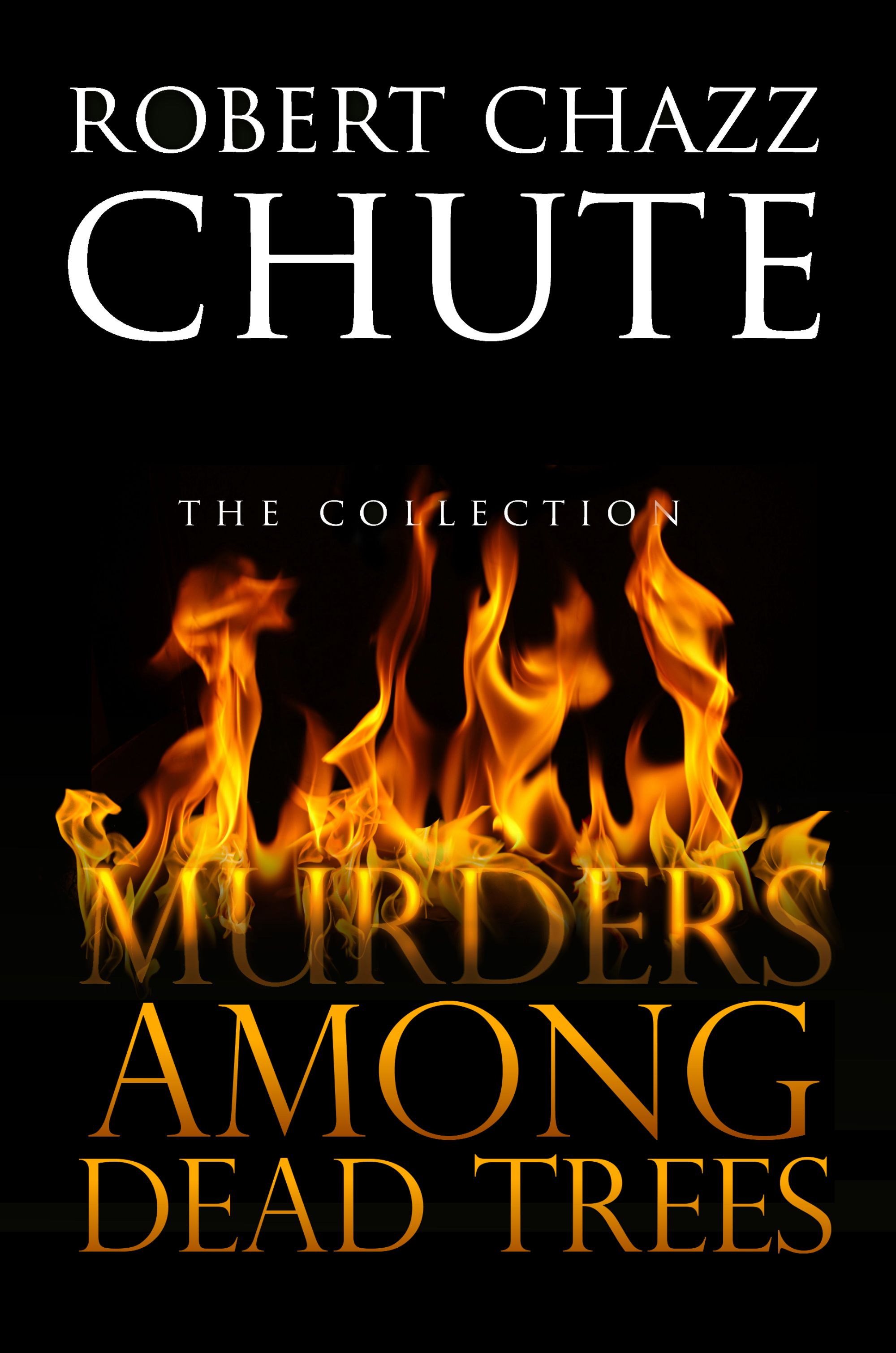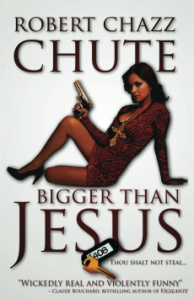The term “hack”, as discussed in this space recently, usually refers to someone, typically writing to tight deadlines, who is churning out words with no love for his or her work. I don’t think that applies any writer I’ve ever met, no matter the project. Every writer is optimistic as they begin a new book. We tell our spouses and girlfriends and boyfriends and basset hounds, “This will be the one that will really wow ’em. If you leave me now, you’ll miss out on all the glory, my accolades and a mention on the Acknowledgments page, so you better stick around.”
Here’s why “hack” is a poor term:
In This Plague of Days, I write about a zombie apocalypse. Maybe that sounds silly to you, but I fell in love with the characters and there are genuine emotional, serious and thoughtful moments. It’s complex and it’s not what you expect. Just as I attempted to do with my hardboiled hit man in Bigger Than Jesus, I played outside the expected conventions. I tried to do something different with the genre.
But here’s the thing: That doesn’t make me unique.
Every writer I know is reaching to the best of their ability to write something awesome, different and engaging, no matter what they’re writing. We try to write the best tweets we can, for Thor’s sake! Certainly we’re aiming for at least that clever when constructing a narrative beyond 140 characters.
We’re all looking for a special turn of phrase or a new twist on an old cliché no matter what we’re writing. We’re searching for ways to entice and delight readers. We love language. We tell stories. I’ll leave it to readers to decide the degree to which we succeed, of course. However, when a reviewer dismisses any writer out of hand, based on their choice of subject, as a “hack”? I reserve the right to dismiss that review. I don’t think the term elucidates anything. A book takes too much work and time for us to aim low.
Say it with me and feel it: “Writing a book is among the least cynical things you can do.”
As a person who, more than once, has been dubbed “Mr. Cynical”, I speak with expertise. We may fall short, but we’re all shooting for the outer moons of Andromeda and to prove our dead moms wrong. Even if the reader thinks they’ve read it all before. Especially when that niggling voice of doubt in our heads tells us, “Some people are really going to underestimate what I can do with this material. I’m going to melt their eyeballs with my fair-bitchin’ prose.”
I suggest we all take each book on its own merits instead of painting with push brooms (and read the sample before you buy to avoid disappointed expectations.) Please don’t say this or that writer is a hack. That’s insulting and too easy, for starters. Besides, like plague viruses, authors evolve, too. Maybe you dismissed Stephen King’s Pet Sematery, but if from that judgment you dismiss all of his work, including The Long Walk, you haven’t read The Long Walk.
It is fair to say a particular plot device is hackneyed, but don’t generalize about all our work. Every author I know, me included, gets better with each new book. Disastrous experience beats the weakness out of us.
What other terms should we be careful about using? To the jargonator!
1. “Commercial”: Does that mean you liked it but felt you shouldn’t? (This is the worst, most disingenuous reaction, last spotted on The Slate Culture Gabfest. That’s right! I’m calling you out, Metcalfe. You’re so meta-snarky, you might be David Plotz.)
Does commercial really mean mass market paperback? With the advent of ebooks, that seems a dated reference.
By commercial fiction, do you mean it tells a ripping story that’s less based on character? Hm. All writers want to make readers care about their characters, so that seems a tad empty.
By commercial, does the critic mean the author wants to sell a lot of books? “How base and singular! No person of character wants that! Are you not of independent means, Monsieur Writer Peasant?”
2. “Muscular” prose: The author is a minimalist, idolizes Hemingway and probably does not possess a MFA from the last thirty years. An obvious attempt to damn with faint praise.
3. “Workmanlike”: Same as #2, but with even fewer syllables in word choice. The critic thinks they’re getting away with being snooty, but we can read the code and the classism isn’t that subtle. Both #2 and #3 are really authorial choices, not burdens to grow past.
4. “Literary”: This means less plot and more exploration of inner worlds when not used as a euphemism for “pretentious.” Certainly this indicates that you’ll leave the book out on the coffee table to prove to the in-laws or tonight’s date that you’re deeper than you seem.
But all authors strive for literary flourishes at the very least. When we’re in composition mode, no premise sounds so tired that we can’t hit it at a different angle, make it great and spin it fresh. I know of no writer, no matter how tight the deadline or how little they are paid, who sets out to write crap. You might say it’s not to your taste. The author might even call it crap…later, after a few more books. But as we write? We’re all Hunter S. Thompson and Margaret Atwood and Kurt Vonnegut rolled up in Shakespearian dreams of legacy, love and respect.
We may fail, but we are artists.
Our hearts are in the right place.
Are you reading with an open mind?
Is your heart in the right place?
Have you dismissed something you haven’t read without even reading the sample?
Well, no, not you, of course, Gentle Reader of this Blog.
But, you know…them other jerks what don’t respect us none.
Filed under: book reviews, publishing, artists, Bigger than Jesus, book reviewers, book reviews, books, commercial fiction, ebooks, fiction, hack, hack writing, Pet Sematery, Plotz, Robert Chazz Chute, Slate, Slate Culture Gabfest, Stephen King, The Long Walk, This Plague of Days, writers, writing


